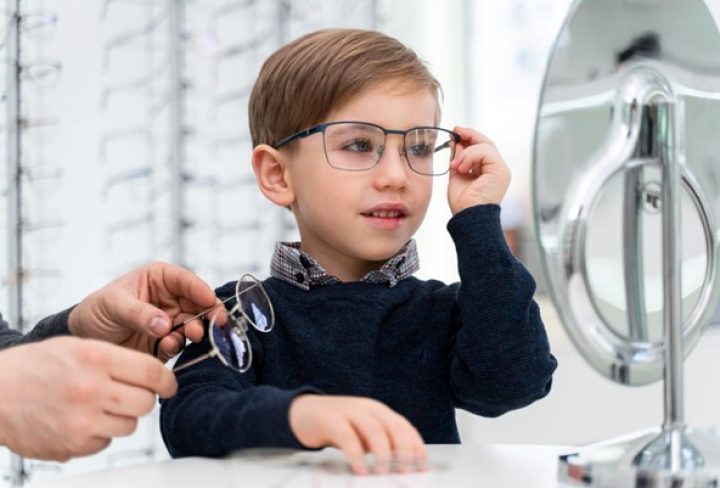Overview
Pediatric vision and hearing screenings are essential tests the Centres for Disease Control and Prevention (CDC) recommends for infants and young children. These screenings help identify abnormalities or disorders in a child’s sight and hearing capabilities. Detecting problems early can provide prompt intervention and treatment, leading to better long-term outcomes.
Recognizing Vision Problems in Children
Some obvious signs of vision problems in children include squinting, holding objects close to reading, experiencing headaches, and complaining about blurry vision. However, there are also subtle signs that should not be overlooked. Parents must know these signs and when to seek pediatric vision and hearing screenings. Here are four signs that indicate a child may have a vision problem:
- Difficulty Following Reading
Does your child struggle to keep track of words and lose their place while reading? This could be a result of conditions such as lazy eye (amblyopia), where one eye has weaker vision than the other.
2. Lack of Concentration
If your child quickly loses interest in activities or projects that require sustained attention, it may be due to vision difficulties. Clear eyesight is necessary for active participation in various tasks, including academic pursuits. Early vision screening can help prevent a decline in school performance.
3. Head Tilting
Does your child frequently tilt their head sideways when looking at something directly before them? This could indicate near-sightedness (myopia), farsightedness (hyperopia), astigmatism, or misalignment of the eyes. Vision screenings can effectively detect these issues.
4. Disinterest in Focused Activities
Does your child show little interest in activities like reading, playing games, or drawing that requires focused attention? Vision limitations can create challenges and frustrations during childhood and adolescence.
Recognizing Hearing Problems in Children
Hearing difficulties can significantly impact a child’s language development and learning abilities. It is important to identify hearing problems early on. Here are some signs that a child may have trouble hearing:
• Lack of response to loud noises or sudden sounds in newborns.
• Recognition of a parent’s voice by three months.
• Turning eyes or head toward new sounds and babbling by six months.
• Imitating words, saying a few words, and responding to their name by 12 months.
As a child grows, signs of hearing loss may include:
- Delayed or limited speech.
- Difficulty following instructions.
- Answering incorrectly.
- Sensitivity to background noise.
- Increased TV volume.
- Learning difficulties.
The Importance of Pediatric Vision and Hearing Screenings
Approximately one-fourth of school-aged children have undiagnosed vision problems, which can lead to long-lasting effects if left untreated. Strabismus is a common issue where the eyes do not align correctly. Amblyopia, or “lazy eye,” is another prevalent condition that affects a child’s visual acuity. Similarly, hearing impairments can have a negative impact on language development, academic performance, and overall well-being. Early identification and treatment of hearing problems before the age of six months can help mitigate these issues.
Benefits of Pediatric Vision and Hearing Screenings
Pediatric vision and hearing screenings are quick and provide valuable insights into a child’s growth and development. The benefits of these screenings include:
- Enhanced Communication
Hearing loss can significantly hinder effective communication, making it challenging for children to speak or understand speech. Early detection and management of hearing loss can improve speech, language, and educational outcomes, enabling children to reach their full potential.
- Identification of Learning Problems
Early detection of vision and hearing problems can alert parents to potential learning difficulties. Vision and hearing issues can significantly impact a child’s ability to learn, as they may struggle to perceive and process information effectively.
- Ensuring Child’s Safety
By obtaining the results of your child’s vision and hearing screenings, you, as a parent, can make informed decisions to ensure their safety and well-being in various aspects of life. In conclusion, pediatric vision and hearing screenings are vital for identifying children’s vision or hearing problems. Appropriate interventions can be initiated by addressing these issues early, leading to improved communication, enhanced learning outcomes, and overall better quality of life for children.

